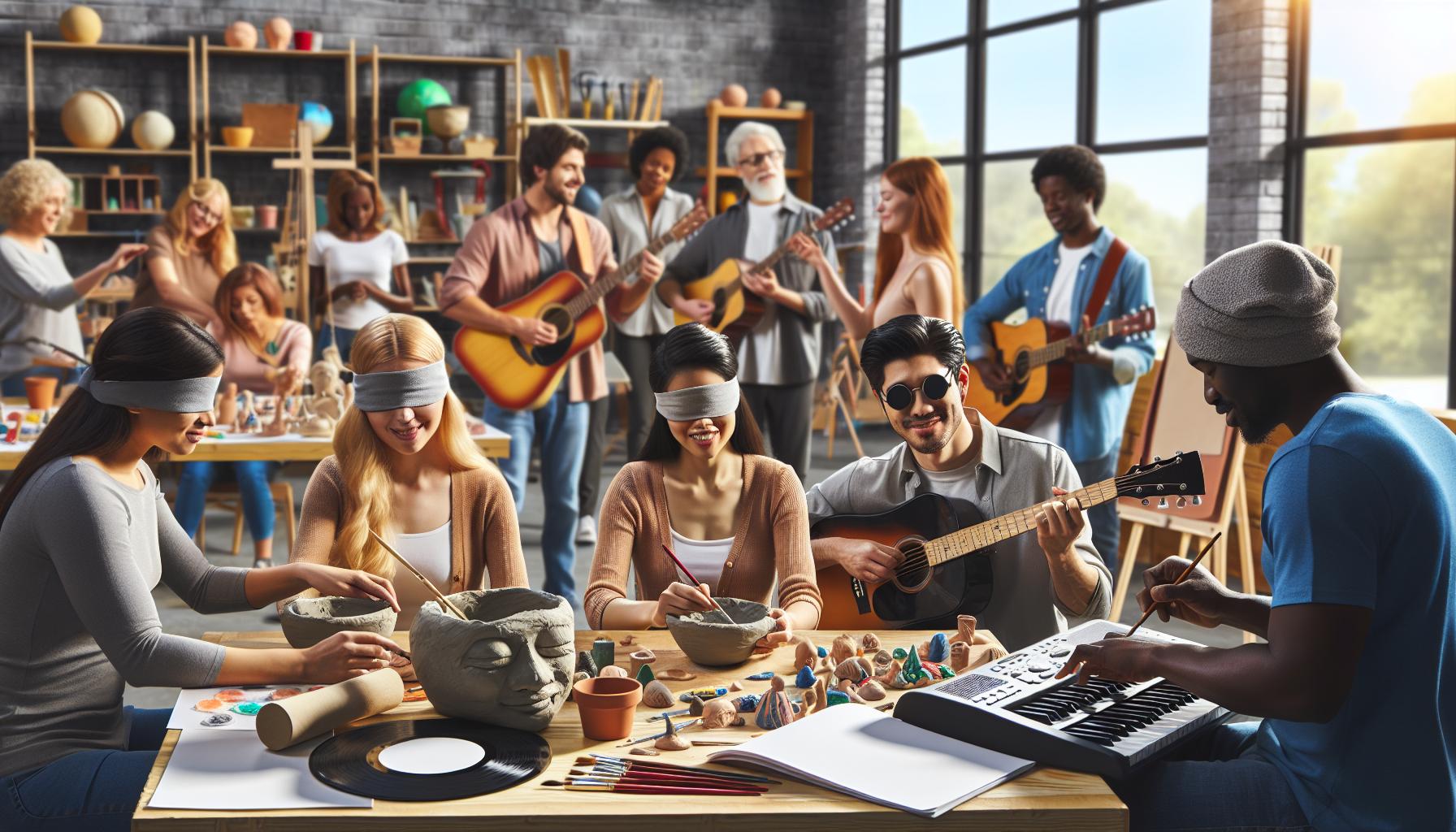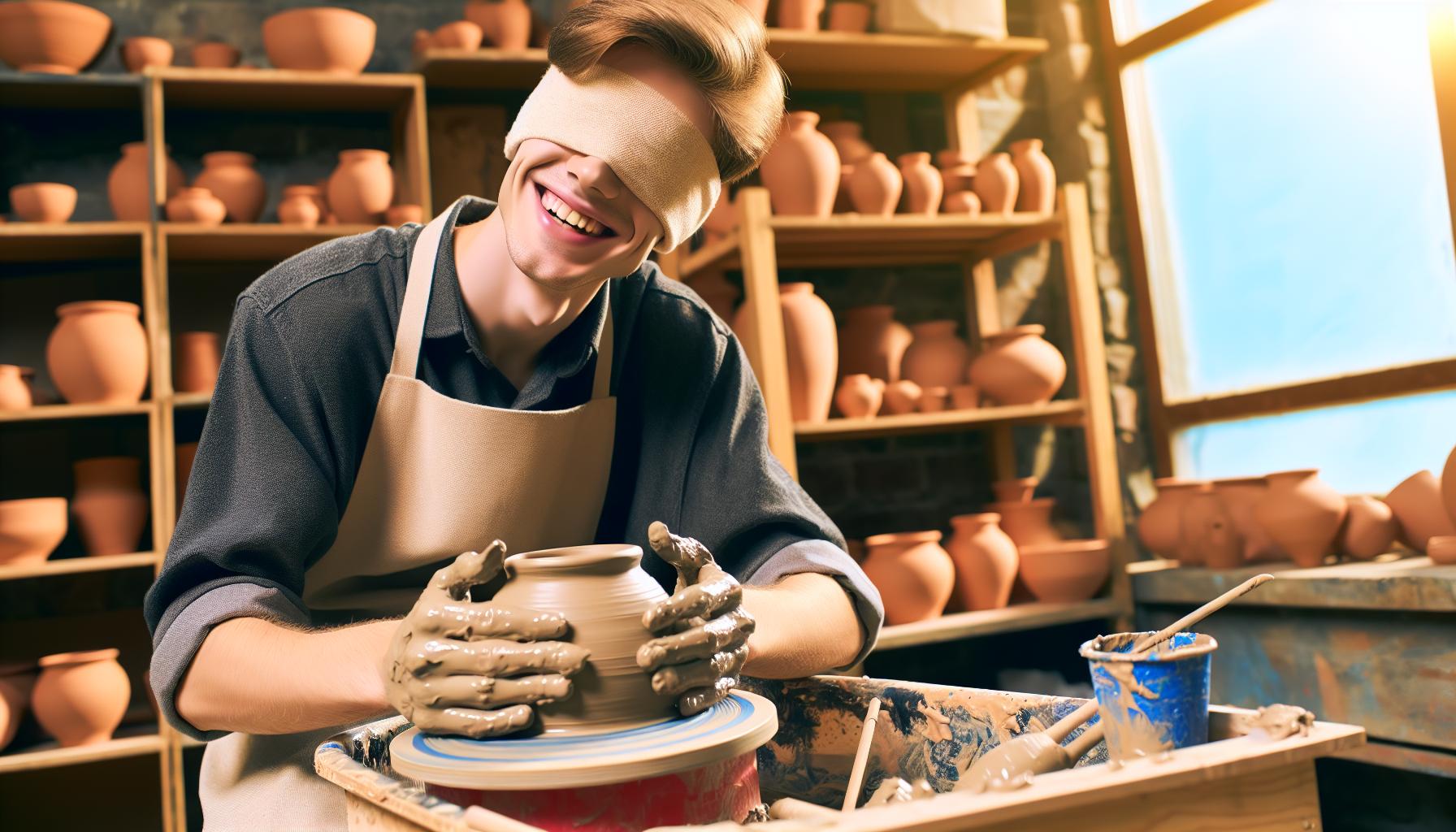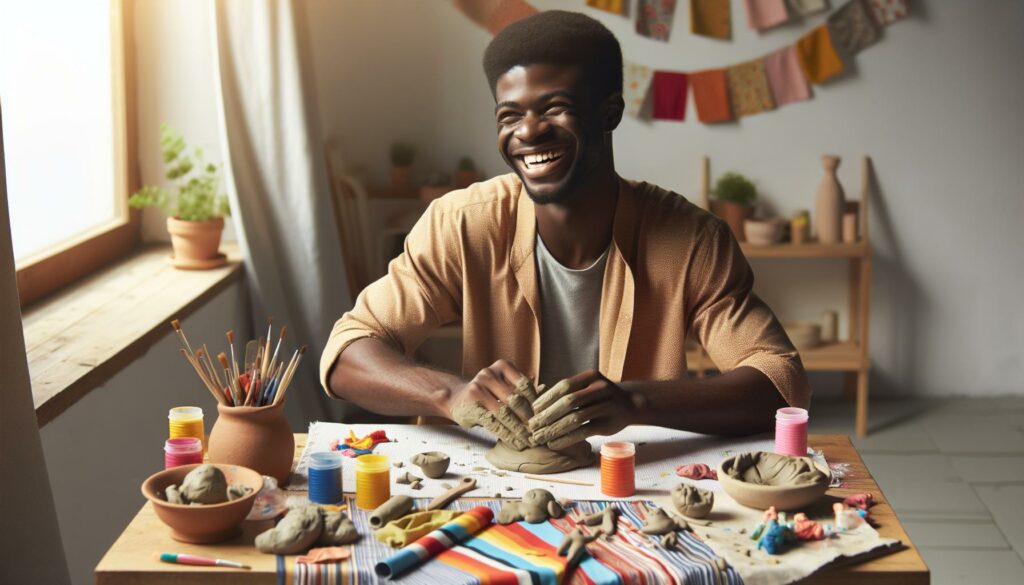Finding Hobbies for Blind People that spark joy and creativity can be a challenge for anyone, but for those who are blind or visually impaired, the search can feel even trickier. However, the world is brimming with activities that engage the senses and ignite passion. From crafting to music, there’s no shortage of ways to have fun and express oneself.
Imagine the thrill of creating a masterpiece with your hands or losing yourself in the rhythm of a favorite song. Hobbies for blind people aren’t just about passing time; they’re about embracing life fully and discovering new talents. So let’s dive into some exciting options that promise not only to entertain but also to empower. After all, who says you need sight to see the beauty in creativity?
Hobbies For Blind People
Hobbies play a vital role in the lives of blind individuals. Engaging in activities fosters joy, creativity and personal fulfillment.
Enhancing Quality Of Life
Hobbies significantly enhance the quality of life for blind individuals. Engaging in enjoyable pastimes boosts mental health and provides a sense of accomplishment. Activities like crafting, music and cooking stimulate the mind and senses. Individuals can cultivate new skills while expressing their creativity. Moreover, participating in hobbies can reduce feelings of isolation. Being immersed in enjoyable experiences promotes relaxation and overall well-being. The joy derived from mastering a new project or skill increases self-esteem and personal satisfaction. These positive effects contribute to a fuller and more vibrant life.
Building Social Connections
Hobbies facilitate the building of social connections for blind individuals. Participating in group activities fosters friendships and camaraderie. Clubs, classes and community events offer opportunities for interaction and collaboration. Engaging in shared interests helps break down barriers and encourages inclusivity. Many hobbies require teamwork, promoting communication and collaboration. Individuals often find support and encouragement within these communities. The social bonds formed through hobbies lead to lasting relationships. Networking and building friendships empower blind persons to thrive socially.
Popular Hobbies For Blind People

Numerous hobbies cater to blind individuals, allowing them to explore their passions while engaging with their surroundings. These activities emphasize creativity, self-expression, and social interaction.
Gardening
Gardening serves as a fulfilling hobby for blind individuals. This activity involves sensory stimulation through touch and smell. Raised beds and tactile markers help identify different plants and areas. Engaging in this pastime fosters a connection with nature while promoting physical activity and well-being. Community gardens offer opportunities for collaboration, enhancing social connections among participants.
Music and Audio Activities
Music and audio activities capture the interest of many blind individuals. Playing instruments, singing, and exploring music increase personal enjoyment and emotional expression. Accessible technology facilitates music creation and editing. Participating in group music classes or choirs builds social ties and nurtures a sense of belonging. Exploring various genres and audio storytelling enriches the experience and stimulates creativity.
Crafting and DIY Projects
Crafting and DIY projects resonate well with blind individuals. Various materials offer opportunities for tactile exploration in activities like knitting, sewing, or sculpting. Workshops and community classes often provide hands-on learning experiences. Engaging in crafts enhances creativity while allowing individuals to produce meaningful pieces. These activities can also lead to social interaction through group projects and shared interests, fostering a sense of community.
Resources Available

Many resources exist to support hobbies for blind people. These tools promote engagement and help individuals explore new interests.
Community Organizations
Local community organizations play an essential role in providing support and resources for blind individuals. Organizations like the National Federation of the Blind (NFB) and the American Council of the Blind (ACB) offer various programs and activities tailored to the visually impaired. These groups often host events that encourage skill development through classes in areas like music, dance, and art. Additionally, they provide opportunities for social interaction, enhancing the sense of belonging among members. Participants can share experiences, receive encouragement, and find new friends. Local chapters also frequently organize workshops and activities, ensuring a supportive environment for personal growth.
Online Platforms and Forums
Online platforms and forums provide valuable resources for blind individuals seeking hobbies. Websites like ACB Community provide virtual meet-ups, covering diverse topics such as crafting and technology. Users can join discussions, learn new skills, or ask questions, creating an interactive, inclusive space. Social media groups also connect visually impaired people with shared interests, fostering friendships and support networks. Online instructional videos and tutorials offer accessible guides for activities like cooking or crafting, making it easier to dive into new pastimes. These platforms empower individuals to engage in hobbies at their convenience, ensuring flexible and enriching experiences.
Tips For Getting Started

Exploring hobbies can be an exciting journey for blind individuals. Various activities cater to different interests, offering fulfillment and joy.
Finding The Right Hobby
Identify hobbies that resonate with personal interests. Engaging in music, crafting, or gardening can create enriching experiences. Consider the desired level of sensory involvement. Some may prefer tactile activities like knitting or pottery, while others might enjoy auditory experiences like playing instruments or singing. Join local groups or classes to discover new options, making connections with others who share similar passions. Experimentation often reveals hidden talents or preferences that enhance enjoyment and overall satisfaction.
Adapting Tools And Materials
Utilize adaptive tools designed for accessibility. Many crafting supplies come with features that enhance usability for blind individuals. For instance, textured paintbrushes aid in visual impairment. Seek out audio instructions or tactile guides that facilitate learning new skills. Incorporating technology can also make a difference; voice-activated devices assist in cooking, for example. By adapting available resources, individuals can fully engage in their chosen hobbies. The right tools enable creativity and exploration, fostering a deeper sense of accomplishment.
Exploring hobbies offers blind individuals a pathway to joy creativity and connection. These activities not only enrich their lives but also foster a sense of community and belonging. By engaging in pursuits that stimulate the senses and encourage self-expression they can discover new talents and build lasting friendships.
With a wealth of resources available from local organizations to online platforms individuals can easily find hobbies that resonate with their interests. Adapting tools and materials ensures that everyone can participate fully in their chosen activities. Embracing these opportunities leads to a more vibrant fulfilling life that celebrates the unique abilities of each person.

